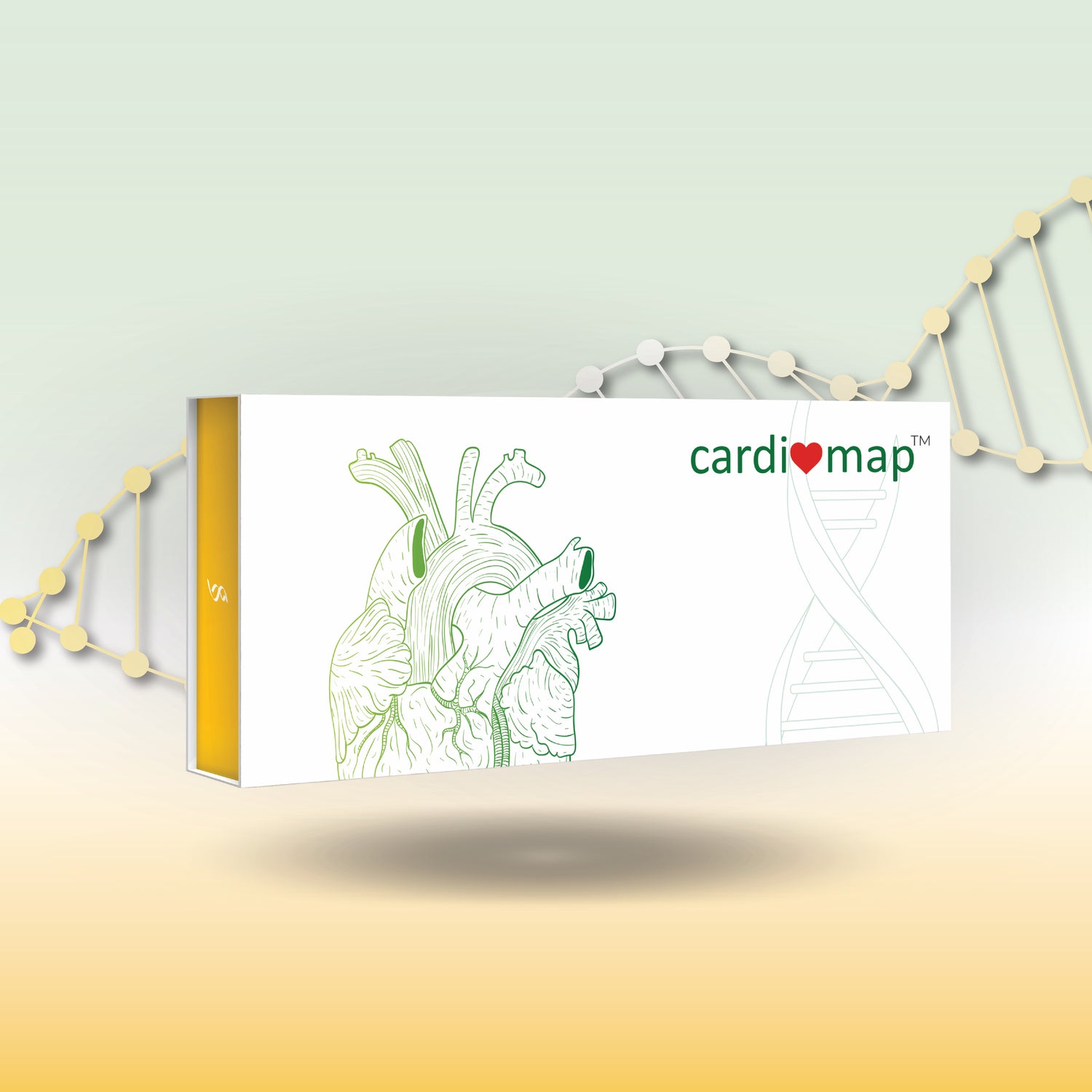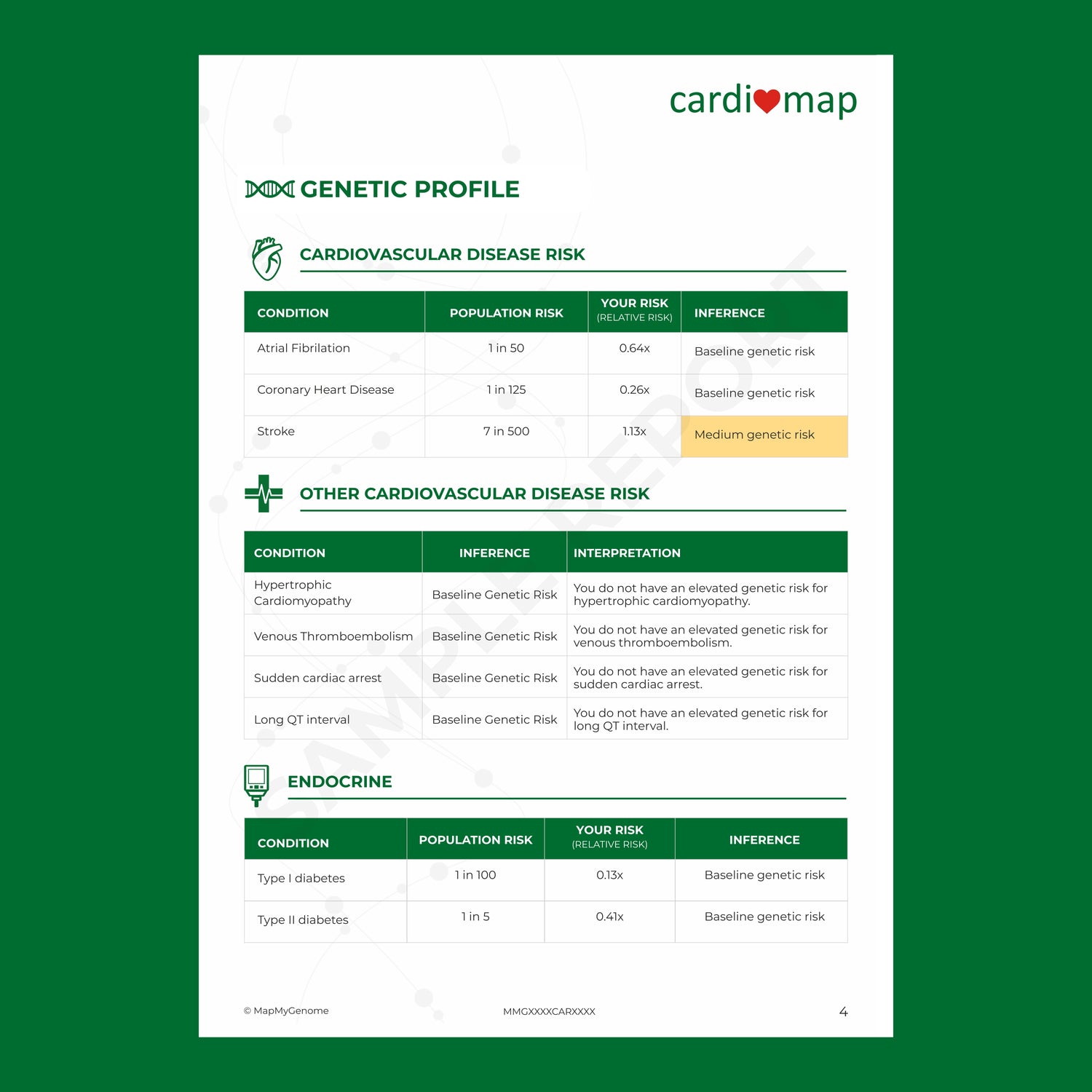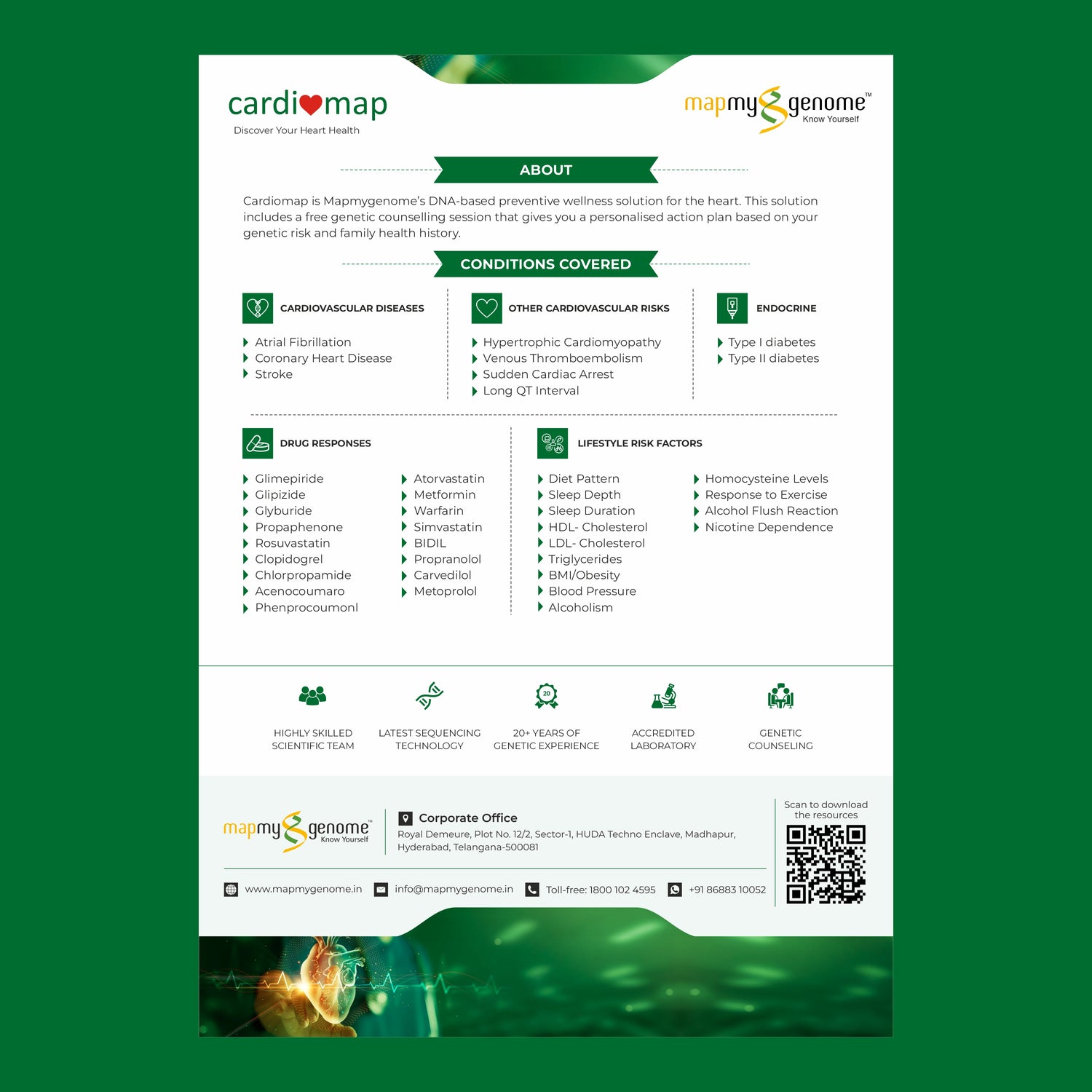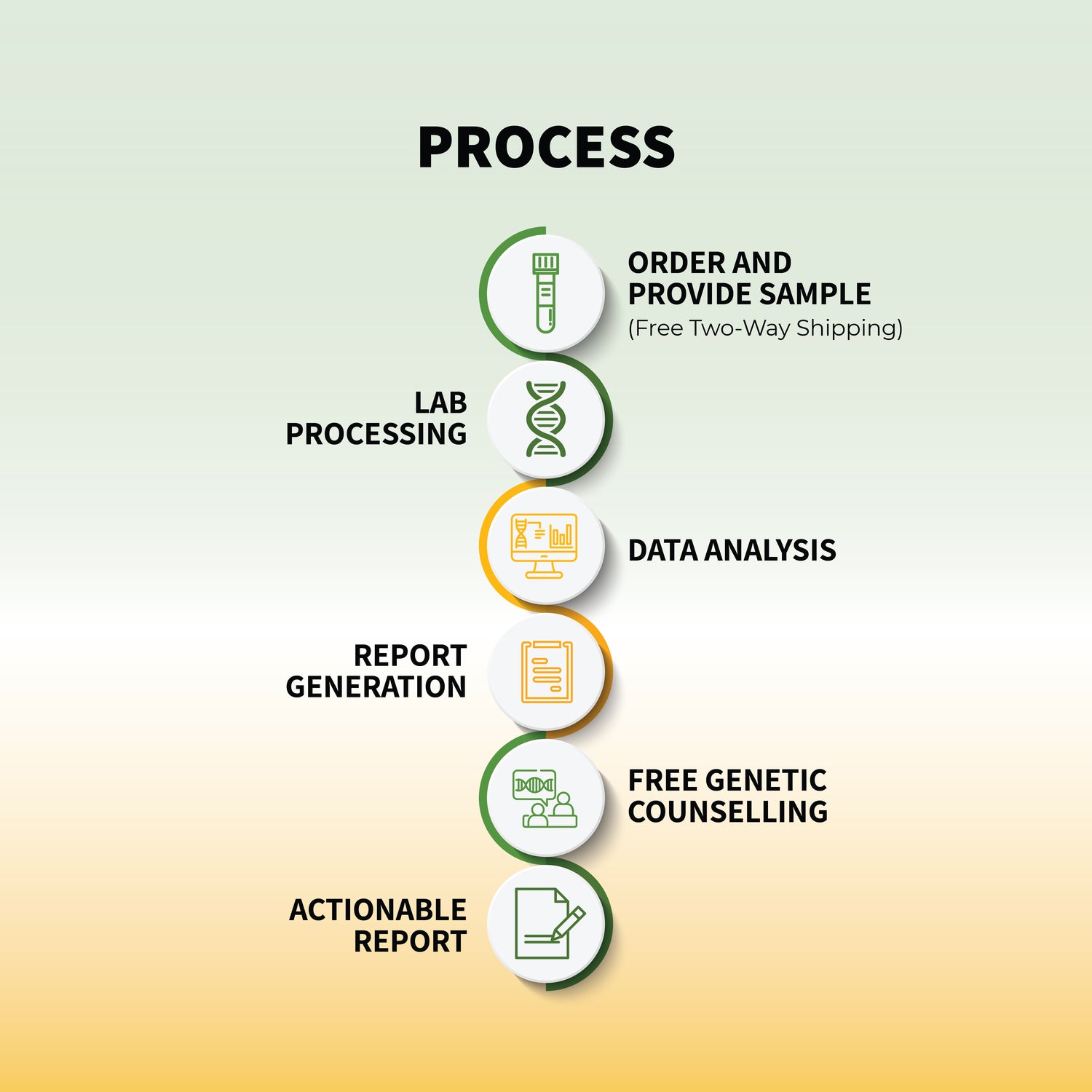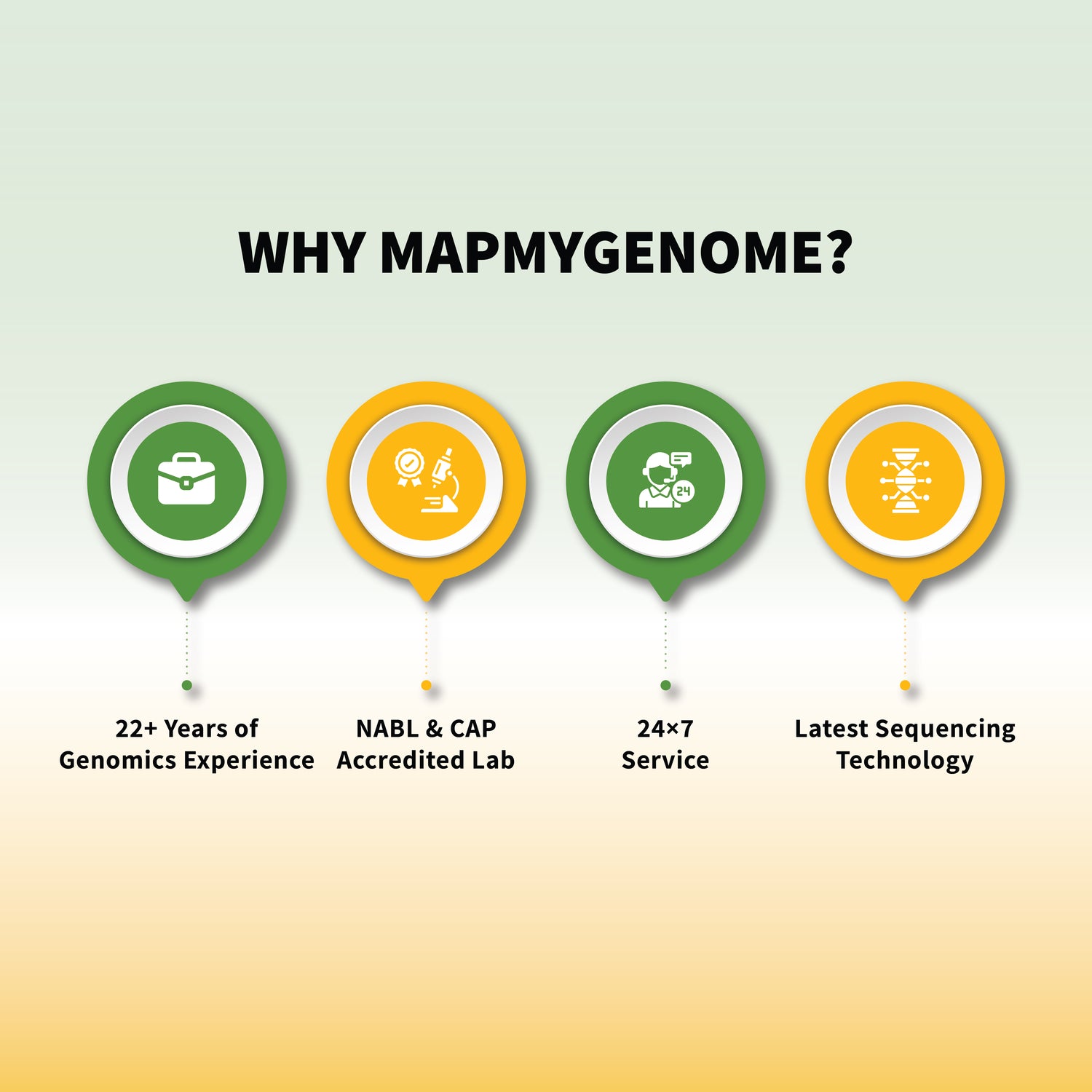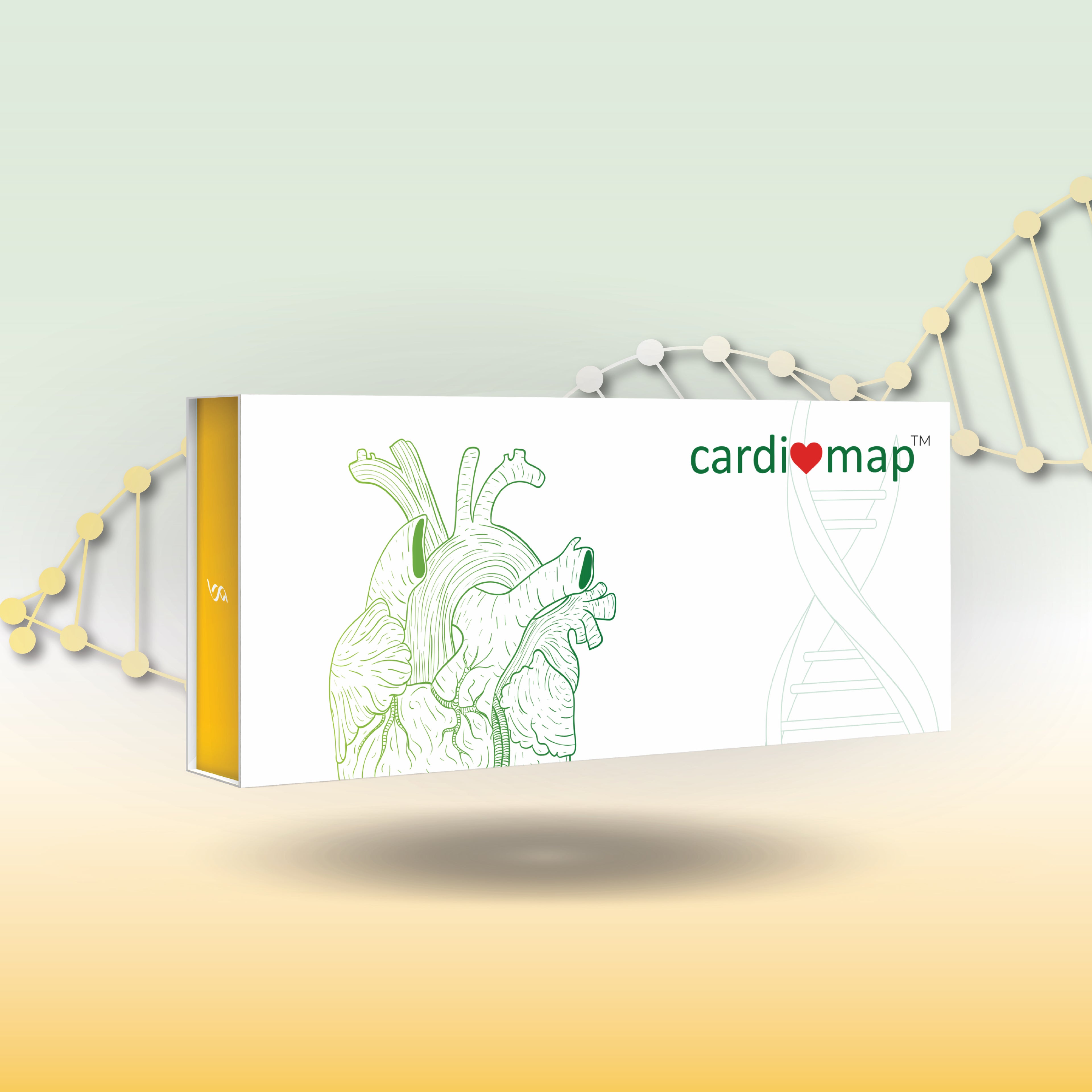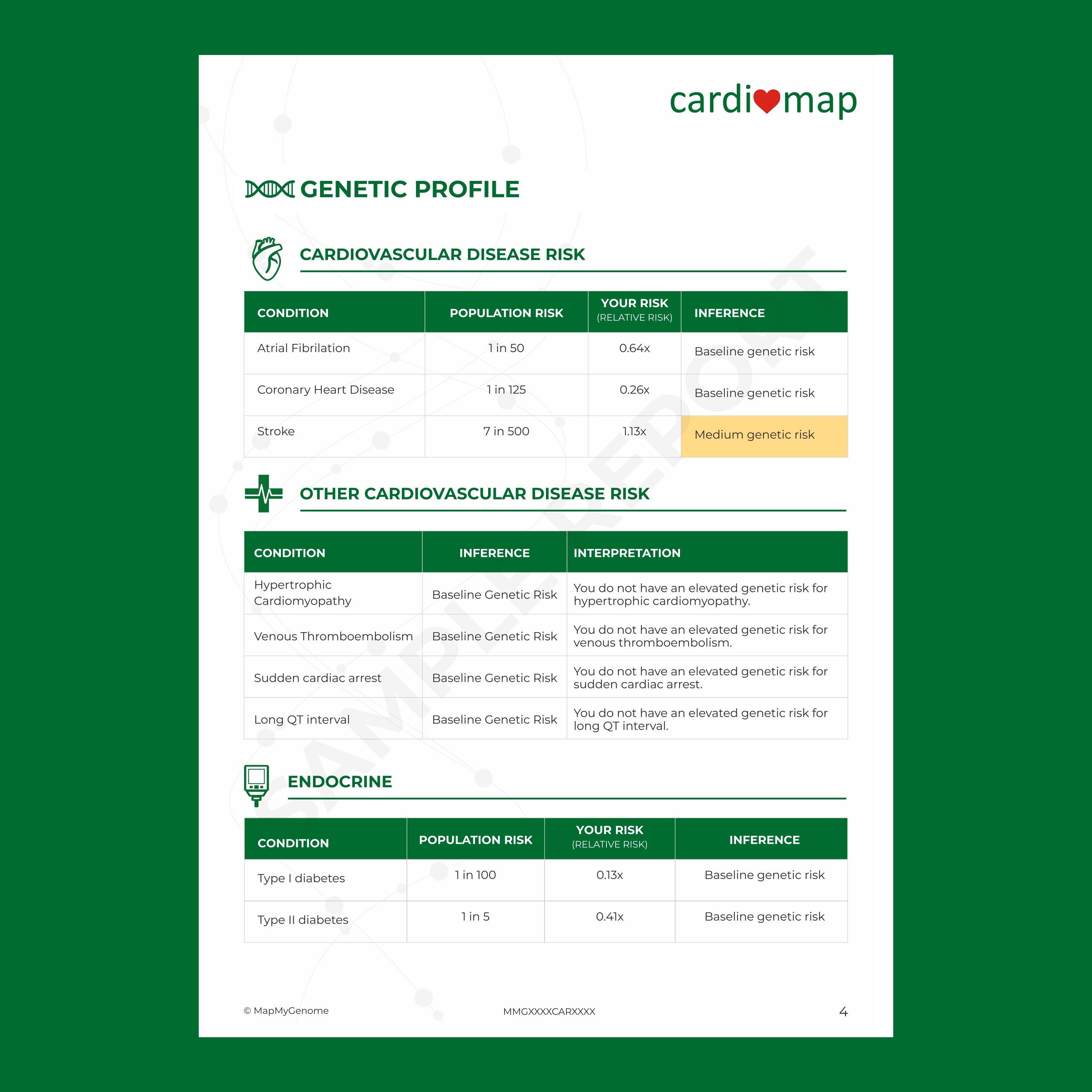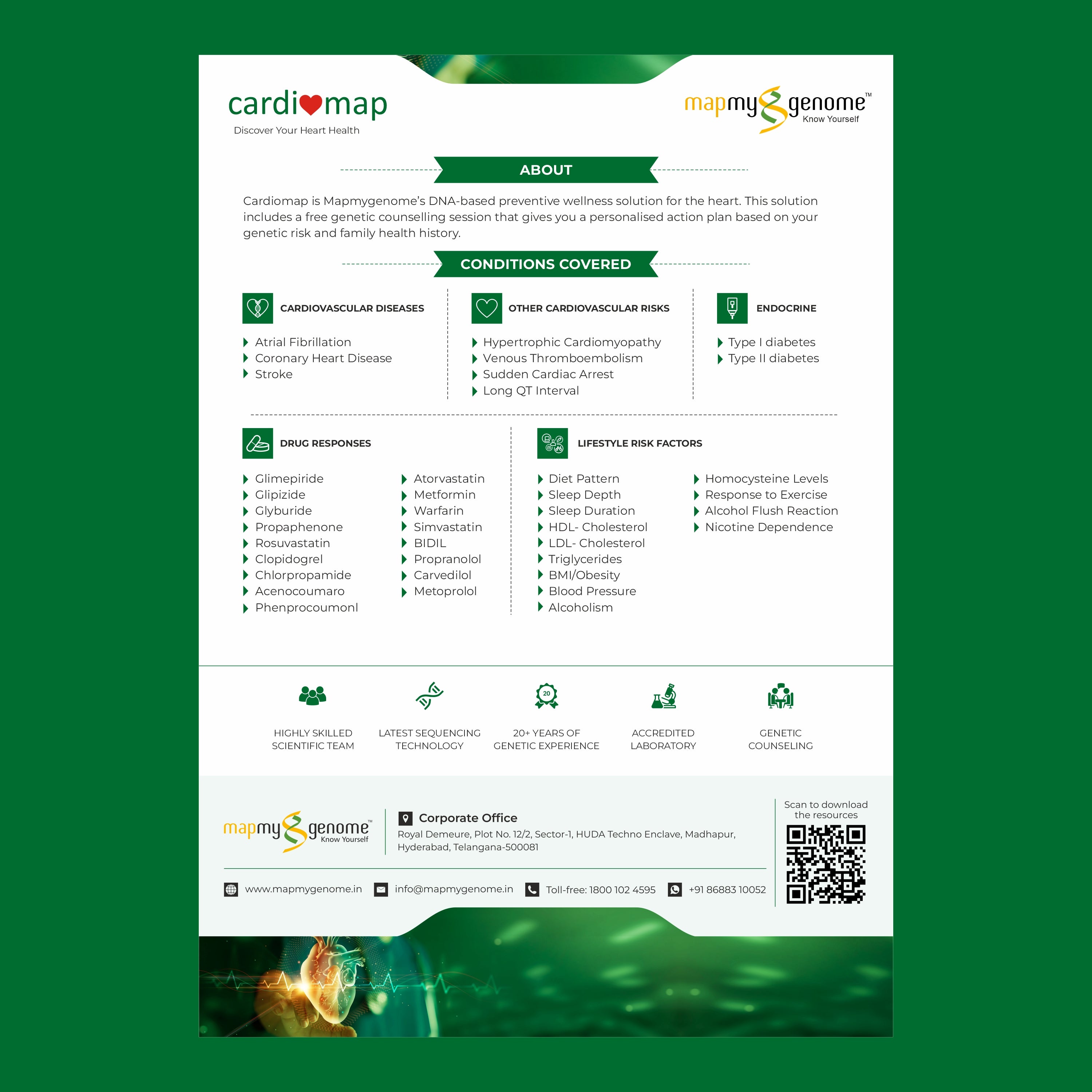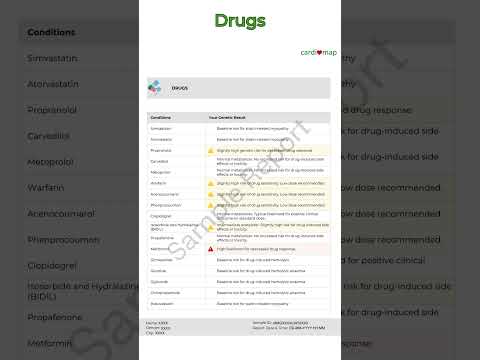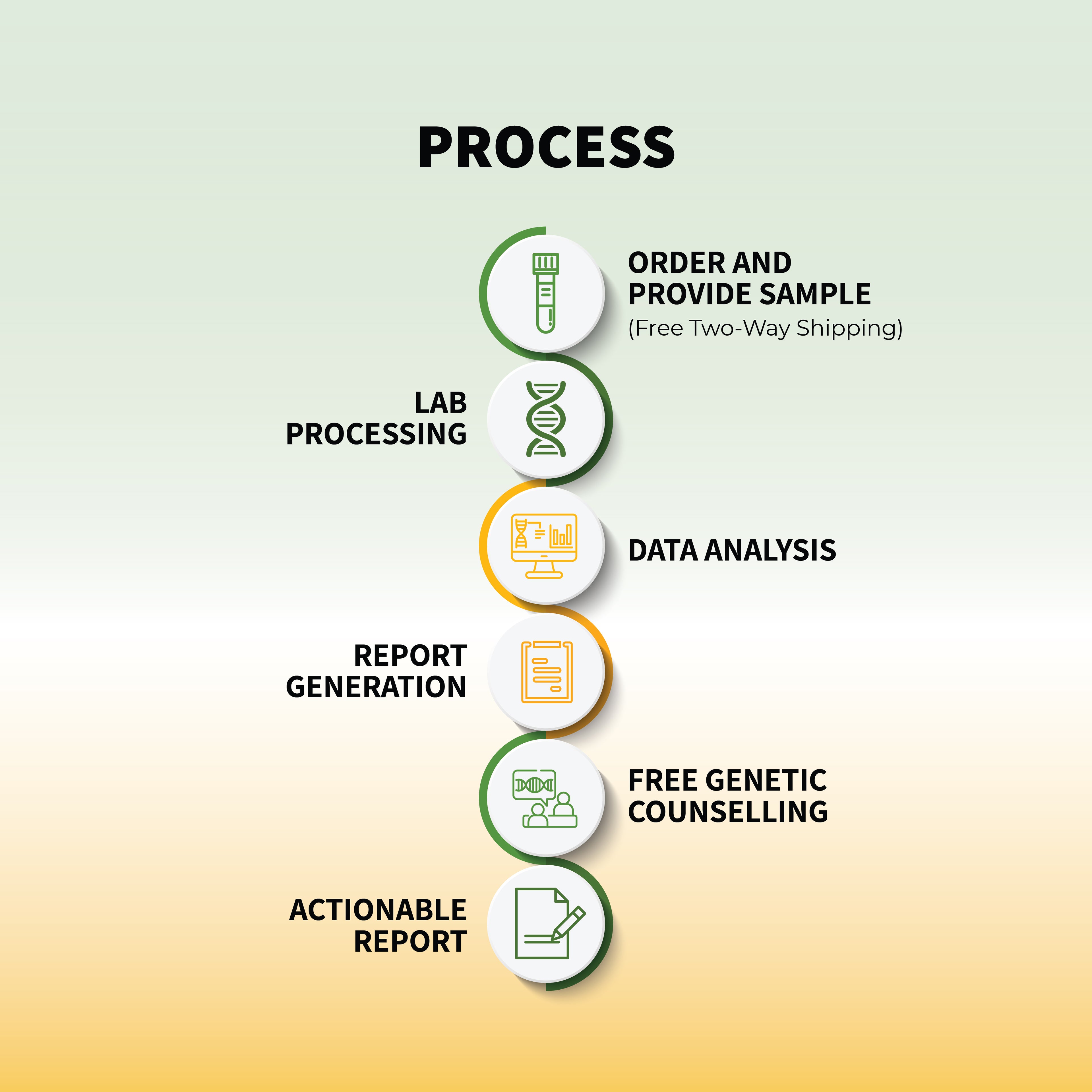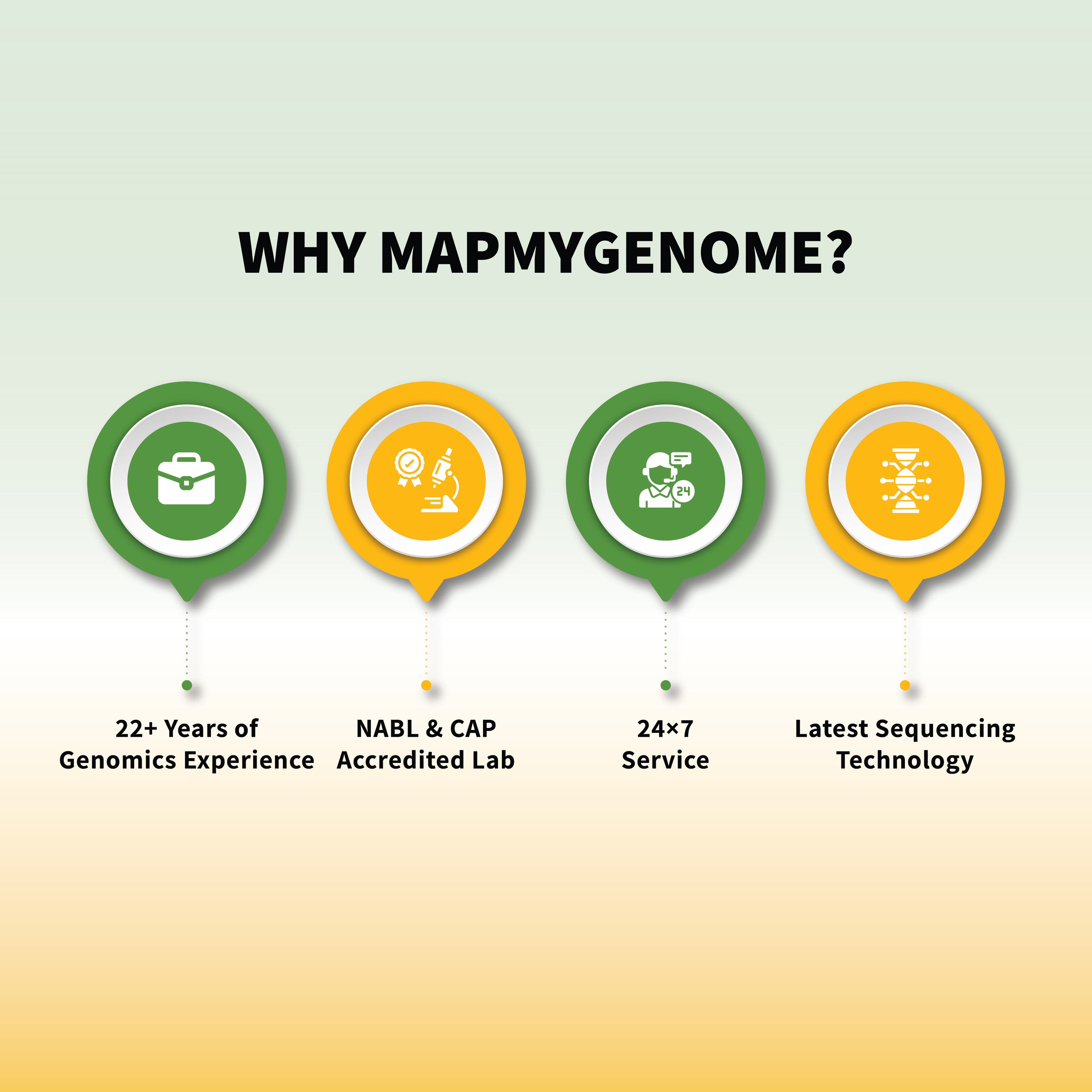Heart disease remains a formidable foe, claiming millions of lives globally each year. But in this digital age, the narrative is shifting. We're not just passive recipients of genetic fate or victims of lifestyle choices. Armed with cutting-edge tools and a deeper understanding of the intricate interplay between our genes, daily habits, and even global health crises, we're taking charge of our cardiovascular destinies.
"The genetic basis of cardiovascular disease is complex, involving numerous genes with small effects," states a comprehensive review in the journal Nature.1 Yet, unraveling these genetic threads can be a game-changer. Companies like MapmyGenome are pioneering personalized medicine with tests like Cardiomap, which assesses an individual's predisposition to various heart conditions. Armed with this knowledge, healthcare providers can tailor prevention and treatment strategies with unprecedented precision.
But genes are only one piece of the puzzle. A landmark study published in the New England Journal of Medicine emphasizes that "lifestyle factors are the most important modifiable determinants of cardiovascular disease risk."2 This isn't news, but the tools we have to monitor and optimize these factors are evolving rapidly.
Forget clunky heart rate monitors of the past. Today's wearables are sleek, sophisticated, and surprisingly insightful. The Oura Ring, for instance, has transcended its origins as a sleep tracker to become a cardiovascular health sentinel. Its new feature, the Cardiovascular Health Score, provides a comprehensive view of your heart health, factoring in arterial age, resting heart rate variability, and more. "Wearables have the potential to revolutionize cardiovascular medicine by providing continuous, real-world data on patients' health," notes a recent perspective in Nature Medicine.3
And then there's the elephant in the room: COVID-19. "The pandemic has highlighted the vulnerability of individuals with pre-existing cardiovascular conditions," warns a study in the Lancet.4 But even those without prior heart issues aren't immune to the virus's potential cardiac consequences. This underscores the importance of ongoing research, vigilant monitoring, and adherence to public health measures.
As we navigate this complex landscape, the power of personalized medicine and wearable technology becomes increasingly clear. We're not just waiting for symptoms to appear; we're actively seeking insights into our unique risks and taking proactive steps to safeguard our hearts. And while these innovations offer unprecedented opportunities, the role of traditional healthcare remains indispensable. Regular check-ups, screenings, and open communication with your doctor are still the bedrock of cardiovascular care.
The heart of the matter is this: the future of heart health isn't about fear or resignation. It's about empowerment, knowledge, and action. By embracing a holistic approach that combines genetic insights, healthy lifestyle choices, cutting-edge wearables, and vigilant medical care, we can rewrite our heart health narratives, one beat at a time.
References:
- Musunuru, K., Kathiresan, S. Genetics of Common, Complex Coronary Artery Disease. Nature. 2016;537(7619):127-137.
- Yusuf, S., et al. Effect of potentially modifiable risk factors associated with myocardial infarction in 52 countries (the INTERHEART study): case-control study. Lancet. 2004;364(9438):937-952.
- Perez, M.V., Mahaffey, K.W., Hedlin, H., Rumsfeld, J.S., Garcia, A.J. Wearable technologies in cardiovascular clinical trials: challenges and opportunities. Nature Reviews Cardiology. 2019;16(6):341-358.
- Nishiga, M., Wang, D.W., Han, Y., Lewis, D.B., Wu, J.C. COVID-19 and cardiovascular disease: from basic mechanisms to clinical perspectives. Nature Reviews Cardiology. 2020;17(9):543-558.



